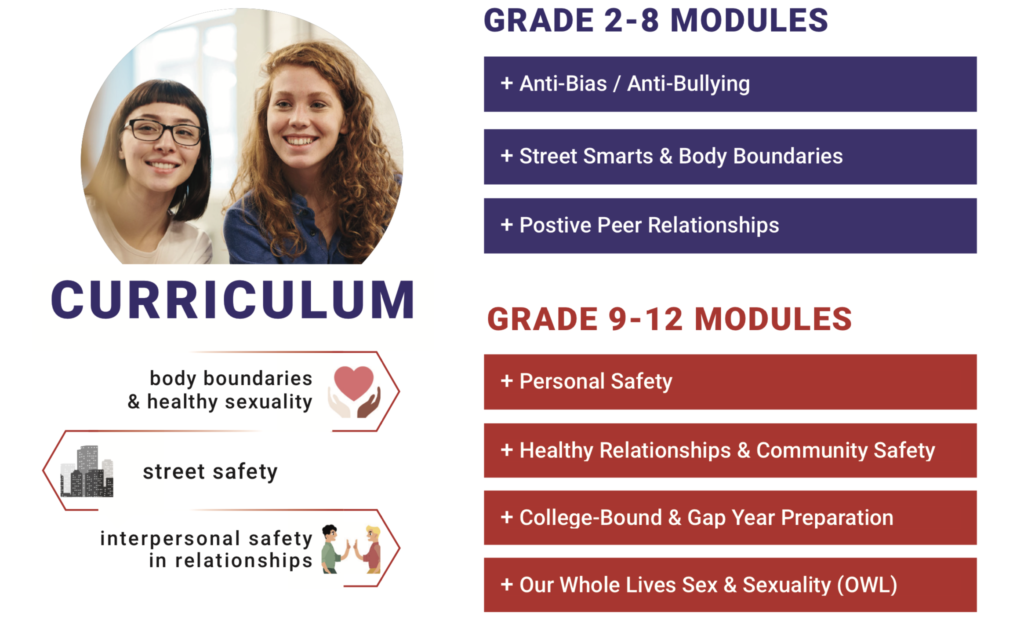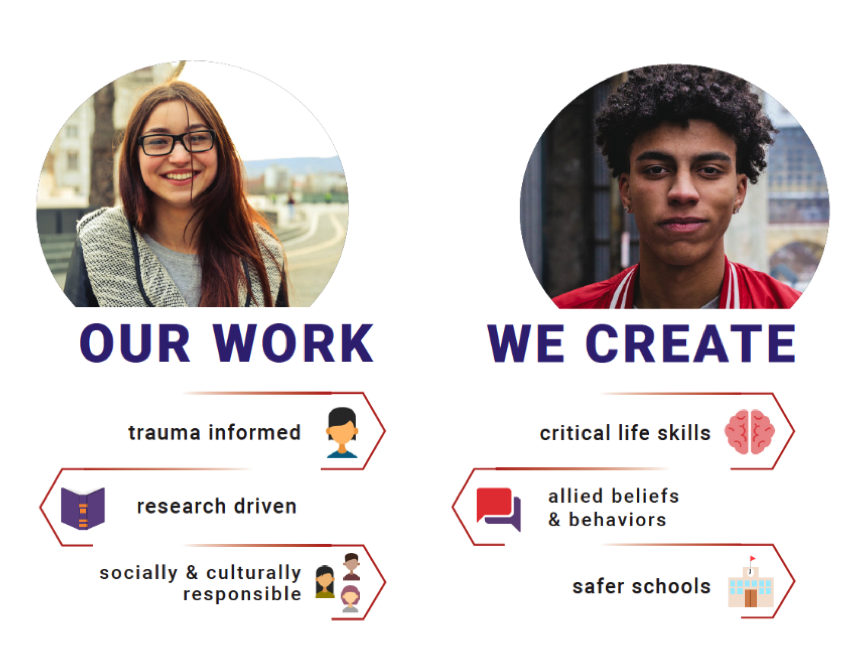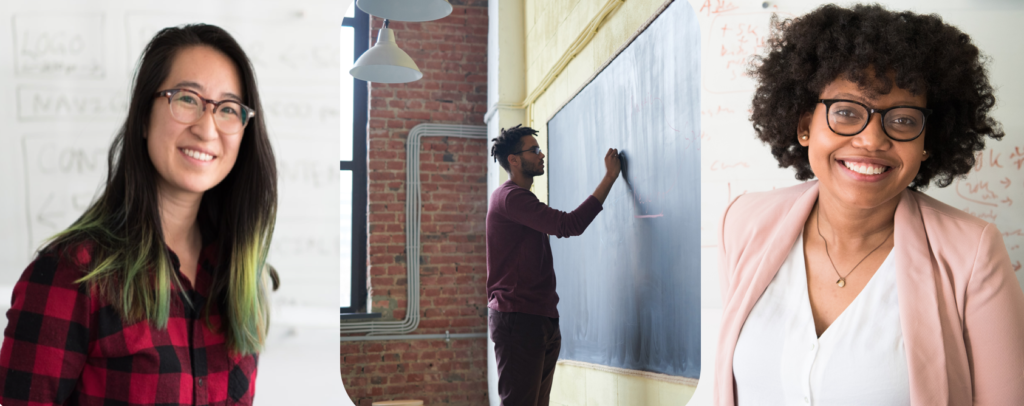Overview
Leaders in innovative learning and social-emotional development agree that educating the whole child is key to current and future student success. Since 1992, Prepare has provided the highest quality comprehensive violence prevention education and worked to build safer individuals and communities through comprehensive, evidence-based violence prevention programs cultivate the personal safety, communication skills, and allied behaviors that contribute directly to the health and wellness of students and their school communities. Prepare’s values and methodology are aligned to educational best practices and incorporate the social and cultural values of the communities where we work.

School communities provide a unique environment to create youth leaders who will influence peer culture and prevention measures in and out of the classroom.

Join the School Movement to End Violence
We offer an array of school-based programs for educators and students in grades 2 – 12. All programs are customized to meet school needs. Programming schedules can vary from an intensive one-day workshop to a full semester of curriculum-based programming. Our programs are frequently offered through physical education, life skills, or health education departments.
Download Student & Educator Program Brochure
Please contact us for scope, sequence, pricing, and scheduling.

Comprehensive Education
We provide programs of sufficient length, depth, and breadth to make an impact. Students and faculty appreciate the opportunity to fully develop the concepts and skills that result in lasting change. We use the term comprehensive to describe:
- curriculum that reaches young people at key developmental stages
- programs that address the entire continuum of violence including social pressures, micro-aggressions, street harassment and worse case scenarios
- response options that offer a wide range of solutions to manage a wide range of problems at multiple decision and action points
- an interdisciplinary approach that integrates sociology, psychology, gender studies, legal systems, anatomy, and physiology

Real Life Solutions for Safety & Social Problems
Most students have not had the opportunity to learn and rehearse how to respond effectively in the moment of fear, intimidation, or emotional discomfort. They practice managing problematic situations, self-advocacy, and allied behavior.
Methodology
Our evidence-based programs utilize varied teaching methods so that students with different learning styles can interact with the material in effective ways including: experiential practice such as role-plays, interactive exercises, learning through discovery, critical and moral thinking, focused group discussions, community-building opportunities, and physical activity.
Customizable Curriculum & Anonymous Surveys
Prepare works closely with school leadership to support community and curriculum goals. We engage in a thorough needs assessment and then customize modules to meet identified school needs. Anonymous pre- and post- program surveys can be utilized to demonstrate the efficacy of our programs and to capture immediate and longitudinal shifts in beliefs and behaviors.
Certified Instructors
Programs are taught by a diverse group of highly trained instructors, all of whom completed a 200-hour IMPACT Self-Defense and Violence Prevention certification and receive on-going professional development. Instructors use trauma-sensitive teaching methods and non-victim blaming language.
Professional Development for Educators
Positive connections to adults is the number one protective factor for young people. We take a school-wide approach with the goal of reaching all adults in a school community. This creates a shared common language for discussing challenging situations, multiplies a community of confident adult role models to respond compassionately and swiftly when situations arise, and promotes preventative measures.
Download Student & Educator Program Brochure
Curriculum for educators includes:
- Introduction to Community Safety
- Trauma for Educators
- Boundary Setting
- Introduction to Personal Safety & Self-Defense
- Building Consent Culture
We offer complimentary introductory training for faculty and families for every student program we deliver.
More questions? Student Programs FAQ
Success
Our school partners report a lower incidence in volume and intensity of bullying, teasing, social cruelty, and exclusion. Likewise, parents and educators note an increase in pro-social bystander behavior, significant boosts in self-esteem and confidence, and enhanced resiliency to challenge and change. Students say that they feel less influenced by social pressures and that they are better able to assert themselves and manage conflict. Students also note that they feel less intimidated to try new things and that they are more likely to enact allied behavior on behalf of others, including speaking up against bias.
“We are so fortunate that Prepare works with our students across divisions. It’s advantageous that students become familiar with the curriculum at the earliest ages, because it allows them to become comfortable, confident, and ready to layer new concepts and skills at each developmental stage and for different vulnerabilities and social pressures. Instructors have a way of reading the room, meeting the students where they are, and ensuring student comfort and safety. They’ve truly become a part of our school community.”
— Robyn Jaffe, Director of Health & Wellness, The Nightingale-Bamford School
“Educator Workshops are thoughtfully planned and incredibly engaging. Participants strengthen intuition, communication skills, and social-emotional development in themselves and for the young people in their lives. PREPARE creates a supportive environment in which participants feel comfortable taking risks and asking tough questions. The students, educators, and families in our school community are prepared with invaluable knowledge and skills.”
— Michelle Harris, LCSW, MA,
Director of Elementary School Social Work, Community Roots Charter School





